Archaeology
UCAS code V400
- Entry requirements
- View full requirements
- Study mode
- Full-time
- Duration
- 3 years
- Start date and application deadlines
-
- Start date
- September 2025 September 2026
- Apply by:
- Starts on:
UCAS code V400
We've set the country or region your qualifications are from as United Kingdom.
Studying Archaeology gives you a means to investigate the past, and an opportunity to study the major developments in human society - from the origins of humans to the development of the great civilisations.
Studying human, animal and plant remains, artefacts and art, you will learn how to reconstruct the past from its material remains. You will investigate the major social, economic, religious and technological developments in long-term human history, from Britain to South Africa and Spain to China, and learn how to carry out archaeological excavation and survey.
Optional modules will allow you to explore specific cultural areas, time periods, analytical methods or interpretive themes from an archaeological perspective.

We’re proud to announce we’ve been awarded a Gold rating for educational excellence.
Discover what you'll learn, what you'll study, and how you'll be taught and assessed.
Year one modules provide students with a broad introduction to both archaeological methods and the archaeology of particular times and places around the world (including Mesopotamia, Greece, Rome, Africa and Europe).
All year one modules are required.
Programme details and modules listed are illustrative only and subject to change.
Year two builds on the foundational modules of year one, introducing specialist modules that provide training in key concepts and techniques from the inorganic (eg metals, glass, pottery) and organic (eg human bones, plants, DNA) archaeological evidence.
Students take 15 credits of required modules and 45 credits of optional modules in semester one.
Students take 30 credits of required modules and 30 credits of optional modules in semester two.
Optional modules must be chosen from at least TWO pathways:
Pathway 1 – Archaeological Methods and Practice
Pathway 2 – Prehistory
Pathway 3 – Ancient Near East
Pathway 4 – Classical and pre-Classical Mediterranean
Students are required to complete 20 days of archaeological fieldwork training, normally during the summer vacation period at the end of year one and year two. The fieldwork is assessed on ALGY248.
Registration onto HLAC220 is only for students planning to undertake a Work Placement Year.
| Compulsory modules | Credits |
|---|---|
| WORKING WITH THE PAST (ALGY248) | 15 |
| ARTEFACTS AND TECHNOLOGY (ALGY250) | 15 |
| RETHINKING STONEHENGE (BRITISH AND IRISH PREHISTORY) (ALGY283) | 15 |
Programme details and modules listed are illustrative only and subject to change.
Students take the core modules listed below including a compulsory dissertation (equivalent to two 15 credit modules), which is a subject of the student’s choice researched in depth under the guidance of a staff member.
Students take 30 credits of required modules and 30 credits of optional modules in semester one, and 15 credits of required modules and 45 credits of optional modules in semester two.
Optional modules must be chosen from at least TWO pathways:
Pathway 1 – Archaeological Methods and Practice
Pathway 2 – Prehistory
Pathway 3 – Ancient Near East
Pathway 4 – Classical and pre-Classical Mediterranean
ALGY450 is a ‘year-long’ module and represents 15 credits in each semester.
| Compulsory modules | Credits |
|---|---|
| ARCHAEOLOGY AND HERITAGE IN CONTEMPORARY SOCIETY: ETHICAL AND POLITICAL ISSUES (ALGY399) | 15 |
| DISSERTATION (ALGY450) | 30 |
Programme details and modules listed are illustrative only and subject to change.
Year one modules provide you with a broad introduction to both archaeological methods and the archaeology of particular times and places around the world. Years two and three build on this foundation through a range of lecture, laboratory and practical skills-based modules. Students studying Archaeology as a joint degree can participate in additional, overseas research excavations. These are currently in Sicily, Bulgaria, Turkey, Jordan, Egypt, Southern Africa and Ireland as well as the UK.
Modules are delivered by a mixture of lectures and seminars in Year One, in Year Two the lecture element within modules is complemented by student led seminars. Finally, in Year Three, most modules are delivered by a short series of lectures with a focus on student-led seminars thereafter. Self-directed study is also expected through the course reading list and conducting research for your essays and projects. Academic staff area regularly available via their office hours for one-to-one feedback and support. Course material is available 24-hours a day on Canvas, our online learning platform, and study support is available from our dedicated student services team.
Typical forms of assessment include:
We have a distinctive approach to education, the Liverpool Curriculum Framework, which focuses on research-connected teaching, active learning, and authentic assessment to ensure our students graduate as digitally fluent and confident global citizens.
The Liverpool Curriculum framework sets out our distinctive approach to education. Our teaching staff support our students to develop academic knowledge, skills, and understanding alongside our graduate attributes:
Our curriculum is characterised by the three Liverpool Hallmarks:
All this is underpinned by our core value of inclusivity and commitment to providing a curriculum that is accessible to all students.
Studying with us means you can tailor your degree to suit you. Here's what is available on this course.
University of Liverpool students can choose from an exciting range of study placements at partner universities worldwide. Choose to spend a year at XJTLU in China or a year or semester at an institution of your choice.
Immerse yourself in Chinese culture on an optional additional year at Xi'an Jiaotong Liverpool University in stunning Suzhou.
Broaden your world by spending an additional year of study at a partner university abroad following your second year of study.
Take a semester of your second year of study at one of our worldwide partner institutions.
Spend a summer abroad on a study placement or research project at one of our worldwide partner institutions.
Every student at The University of Liverpool can study a language as part of, or alongside their degree. You can choose:
With a combined degree, you can study two subjects as part of the same degree programme.
Explore combined degrees for Archaeology, Classics and Egyptology courses
The Department of Archaeology, Classics and Egyptology is part of the School of Histories, Languages and Cultures. Teaching takes place across campus, including in specialist facilities in the Central Teaching Hub.
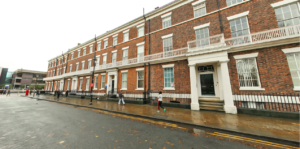
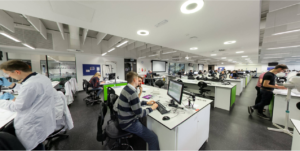
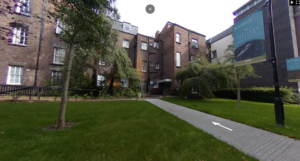
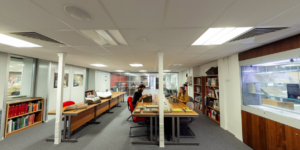
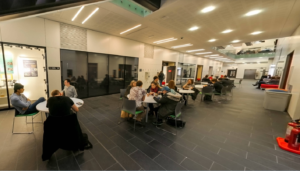
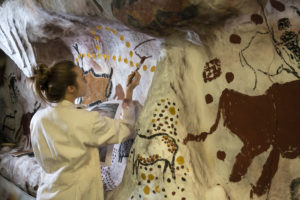
From arrival to alumni, we’re with you all the way:

Want to find out more about student life?
Chat with our student ambassadors and ask any questions you have.
An Archaeology degree from Liverpool provides you with a rigorous training experience that produces graduates with an exceptional breadth of knowledge.
Our graduates are well-equipped for a wide variety of private or public sector careers, including in finance, journalism, teaching, law, the police or Civil Service, tourism, and heritage management where knowledge of archaeology is a specific advantage.
Past students have successfully gained employment in universities and major museums, locally, nationally, and internationally.
Recent employers include:
88% of students go on to work or further study within 15 months of graduation.
(Graduate Outcomes, 2018-19.)
My qualifications are from United Kingdom.
Your tuition fees, funding your studies, and other costs to consider.
Full-time place, per year - £9,535
Year abroad fee - £1,430 (applies to year in China)
Full-time place, per year - £24,100
Year abroad fee - £12,050 (applies to year in China)
The tuition fees shown are correct for 2025/26 entry. Please note that the year abroad fee also applies to the year in China.
Tuition fees cover the cost of your teaching and assessment, operating facilities such as libraries, IT equipment, and access to academic and personal support. Learn more about paying for your studies.
We understand that budgeting for your time at university is important, and we want to make sure you understand any course-related costs that are not covered by your tuition fee. This includes specialist equipment and fieldwork costs.
Students will be required to cover the costs listed below for year one compulsory fieldwork- two weeks in Penycloddiau, North Wales:
In year two, those who must complete a further two weeks of fieldwork have several options with varying costs. Some options are based in the UK and have no additional costs, others are based abroad. For those choosing to join a site abroad, students will be expected to pay for their own flights, accommodation, and sustenance. The costs for this vary from site to site.
We offer a range of scholarships and bursaries that could help pay your tuition and living expenses.
If you’re a UK student joining an undergraduate degree and have a household income below £35,000, you could be eligible for a Liverpool Bursary worth up to £2,000 for each year of undergraduate study.
Apply for an Asylum Seekers Scholarship and you could have your tuition fees paid in full and receive help with study costs. You’ll need to have applied for asylum in the UK, or be the dependant of an asylum seeker, and be joining an eligible undergraduate degree.
If you’ve spent 13 or more weeks in Local Authority care since age 14, you could be eligible for a bursary of £3,000 per year of study. You’ll need to be a UK student joining an eligible undergraduate degree and be aged 28 or above on 1 September in the year you start.
Are you a UK student with a Black African or Caribbean heritage and a household income of £25,000 or less? You could be eligible to apply for a Cowrie Foundation Scholarship worth up to £8,000 for each year of undergraduate study.
If you’re a UK student identified as estranged by Student Finance England (or the equivalent UK funding body), you could be eligible for a bursary of £1,000 for each year of undergraduate study.
Joining a School of Biosciences degree and have a household income of less than £25,000? If you’re a UK student, you could apply to receive £4,500 per year for three years of your undergraduate course.
Do you live in the Liverpool City Region with a household income of £25,000 or less? Did neither of your parents attend University? You could be eligible to apply for a Nolan Scholarship worth £5,000 per year for three years of undergraduate study.
Are you a UK student with a household income of £25,000 or less? If you’ve participated in an eligible outreach programme, you could be eligible to apply for a Rigby Enterprise Award worth £5,000 per year for three years of your undergraduate degree.
Are you a UK student with a household income of £25,000 or less? Did neither of your parents attend University? You could be eligible to apply for a ROLABOTIC Scholarship worth £4,500 for each year of your undergraduate degree.
Apply to receive tailored training support to enhance your sporting performance. Our athlete support package includes a range of benefits, from bespoke strength and conditioning training to physiotherapy sessions and one-to-one nutritional advice.
Joining a degree in the School of Electrical Engineering, Electronics and Computer Science? If you’re a UK student with household income below £25,000, you could be eligible to apply for £5,000 a year for three years of study. Two awards will be available per academic year.
If you’re a young adult and a registered carer in the UK, you might be eligible for a £1,000 bursary for each year of study. You’ll need to be aged 18-25 on 1 September in the year you start your undergraduate degree.
Select the specific entry requirements you want to view below.
Have a question about this course or studying with us? Our dedicated enquiries team can help.
Last updated 1 September 2025 / / Programme terms and conditions